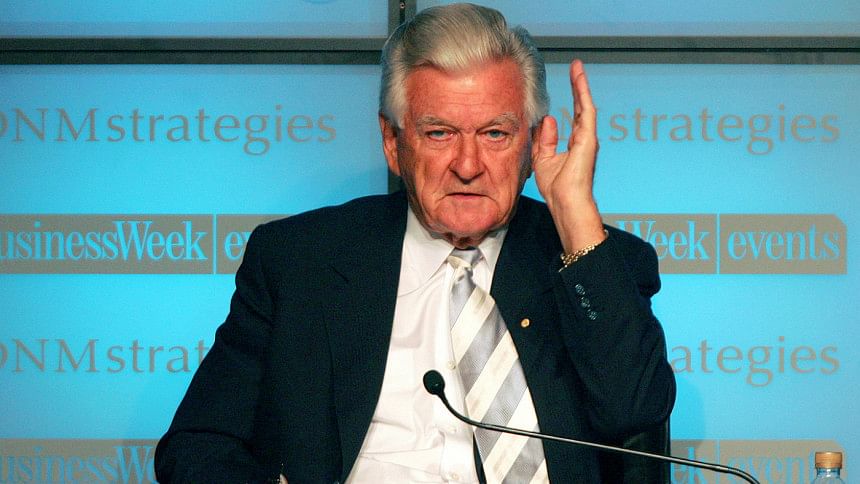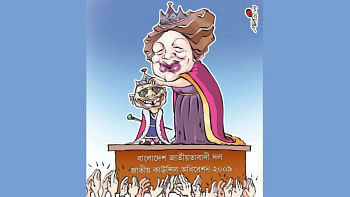Australia's former PM Bob Hawke dies at 89

Bob Hawke, a transformative and charismatic left-wing lawmaker with a "larrikin' streak who served as Australian prime minister from 1983 to 1991, died today aged 89, his Labor party said.
"The Australian people loved Bob Hawke because they knew Bob loved them, this was true to the very end," party leader Bill Shorten said in a statement, just days ahead of a general election in which he is widely expected to become the next prime minister.
While others may have struggled to dismiss a reputation for boisterous, if well-meaning, behaviour, silver-haired Hawke said it helped him win favour with working-class voters.
Hawke earned his reputation as a "larrikin" in part due to his setting a world record for drinking a "yard", or 1.4 litres, of beer in 11 seconds while at Oxford University.
Robert James Lee Hawke, a former trade union leader, was first elected to parliament in 1980 and was named leader of Australia's centre-left Labor Party less than a month before a snap general election in 1983.
Voters quickly embraced Hawke and Labor won an unlikely landslide victory against the conservative government led by Malcolm Fraser, who had been in power for nearly a decade, for Hawke to become Australia's 23rd prime minister.
"I regard Bob Hawke as the best Labor prime minister this country has ever had," former conservative leader John Howard, who served as Fraser's treasurer, said this year.
Inheriting an economy that was languishing in recession and suffering from double-digit unemployment and inflation, Hawke embraced economic deregulation that belied his connections with Australia's largest trade unions.
Hawke won support from the political left to float the Australian dollar, remove controls on foreign exchange and interest rates and lower tariffs on imports within months of his inauguration.
The reforms triggered a wave of economic growth, allowing Hawke to introduce universal healthcare, strengthen social security for poor families and enact stronger environmental legislation.
EFFORTS AGAINST APARTHEID
Within months of Hawke becoming prime minister, Australia won sailing's America's Cup in 1983, ending 132 years of US dominance over the oldest trophy in world sport.
Hawke led the celebrations, famously declaring on television: "Any boss that sacks a worker for not turning up is a bum."
Australia also made its mark on the international stage under Hawke, who shifted diplomatic priorities away from Britain, fostering closer ties with the United States, China, Japan and Southeast Asia.
He also spearheaded international efforts to impose economic sanctions on South Africa over apartheid.
Hawke was riding high in opinion polls by the mid-1980s and won re-election in 1987 despite an economic downturn.
He won a fourth election in 1990 to become Australia's longest-serving Labor prime minister but his popularity began to wane amid a recession.
Paul Keating, Hawke's treasurer and the architect of Labor's economic policies, pressured him to step aside as his position weakened.
However, with no sign that Hawke would retire, Keating challenged him for the leadership in 1991. Hawke saw off the first challenge but eventually lost to Keating a few months later in a party-room coup.
He quit politics three months later.
Hawke divorced his wife of nearly 40 years, Hazel Masterson, after leaving politics and public life and married his biographer, Blanche d'Alpuget. He appeared as a media commentator and was in demand as a public speaker.

 For all latest news, follow The Daily Star's Google News channel.
For all latest news, follow The Daily Star's Google News channel. 



Comments